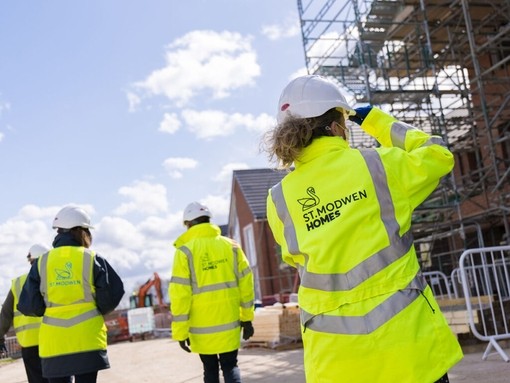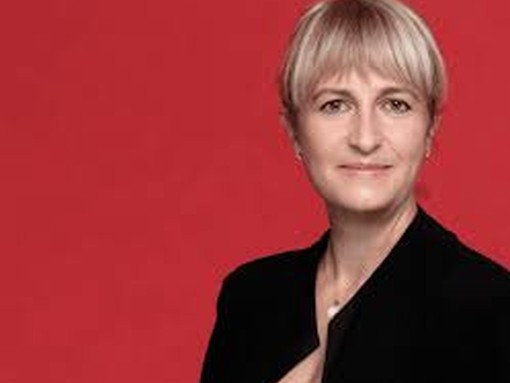
"Sometimes I have to pinch myself" - Morson CEO, Ged Mason discusses the Morson Group DNA, his father's legacy and why 'data is the new oil'.
Morson Group is set to hit a billion pounds in turnover next year and founder Ged Mason says he wants to give back to the community and move with the times
Morson Group places 11,000 people in new jobs each year, with more than 14,000 contractors working in 37 countries. Its turnover is currently in excess of £900m.
It is little surprise then that according to this year’s Rich List, Ged Mason appears to be worth a cool £170m.
But Mason hasn’t lost any of his Salford charm, warmth or down-to-earth persona.
The chief executive of Morson Group, set to turn over £1bn next year, is jovial and patient as he poses for our cover shoot on his office roof on a rainy Thursday afternoon. Even on a murky day, you can see the Beetham tower to the left, the Trafford Centre to the right and, one of Mason’s favourite views, Old Trafford in the distance. “You can’t see City, thankfully,” he jokes.
Back in the office, I notice one of Lowry-protégé Harold Riley’s paintings of Salford on the wall. The depiction of the legendary ‘dirty old town’ is in Morson’s DNA.
Mason explains how the company was started by his father Gerry Mason, and again he gestures out of the window to Trafford and Salford below us. “My father was a design engineer. He worked across the way there.”
Gerry Mason served his apprenticeship and went to Toronto, Canada. “Initially it was because of a passion for jazz music. He did various work assignments and we emigrated there when I was a child. His last assignment was Detroit.
“Martin Luther King got assassinated and there were curfews, so my mother decided she wanted to come back to England.”
I ask why the company is called Morson and not Mason.
“Dad had a colleague called Corbett. They put the names together. It started at Eccles from his house and his first office was less than half a mile away. In the early days, [the business] concentrated on supplying engineers to established companies in the North West.”
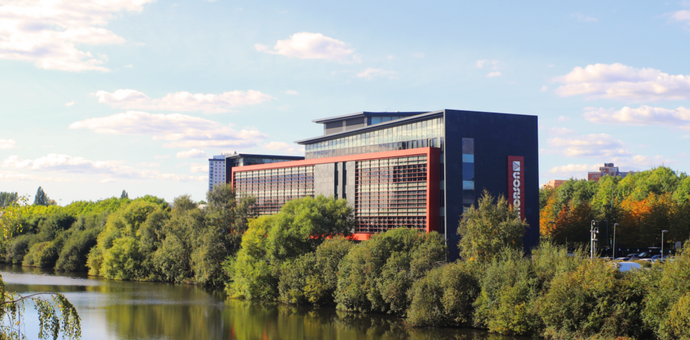
In 1969 specialist recruiters for the engineering sector were not common in the UK.
Mason says: “It wasn’t that common or mature. We were providing staff for design project work. You wouldn’t necessarily want a full-time person to do, say, stress engineering, so it was to cover that peak and trough. In those days it was pioneering and educating clients to the usage of temporary workers.”
Morson initially concentrated on the North West on busy industry sectors. Mason says: “Aerospace in Chadderton, Wharton and Samlesbury, nuclear with Sellafield and its head office in Warrington. It was a central hub for engineering.”
Ged Mason also went to Canada after university and “cut my teeth in a recruitment business”.
I ask him whether it had always been his ambition to work in the family business.
Mason says: “I knew I wanted to go into my dad’s business – it was exciting seeing my father work in the summer holidays. Another playground for me.”
Working with family is some people’s idea of hell. I ask Mason if there was ever any friction in the 12 years, he shared an office with his father. But his memories of it are all fond.
He says: “It doesn’t fit for everyone. People who say they couldn’t work with their family, that’s a crying shame.
“My dad was patient with me when I was wet behind the ears. I had my own opinions and he allowed me to express myself, knowing I had him there for advice and guidance.”
He says they worked out a way that any disagreements were made to fizzle out quickly: “If we had a heated disagreement one of us would get up and go outside, make a brew or walk around the car park, and we’d come back and move on.”
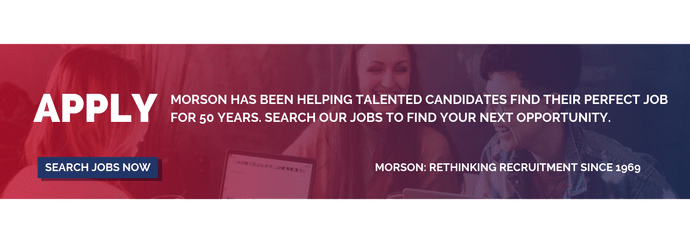
Mason explains how Morson’s expansion came about: “The international expansion came about from the recession and three-day working. There wasn’t the investment. Oil and gas is feast or famine.
“So, my father, with his connections in Canada, did some work supplying engineers there while the market in the UK was quiet. He had offices in Toronto, Los Angeles and Houston, as well as Holland and the Hague. Then the UK picked up.”
When Ged Mason came into the business, he had to learn the ropes. “I started, like most people, brewing up. Sharing an office with various managers I learnt the trade and moved around.”
Within Morson’s offices are BAE Systems project rooms with blacked-out windows for security.
“At the time [BAE Systems] were building Tornados and the Eurofighter Typhoon. There was a lot of work in aerospace and nuclear.”
“We have a market-leading position in those sectors. We’ve extended into rail.”
Along with Manchester United and paintings of old Salford, there are also references in the office to the military. And providing jobs to ex-soldiers is close to his heart.
Mason says: “[For] the armed forces, coming back into the work environment is tough. They are hard-working, the productivity is there. We have over 2,000 ex-armed forces working for us. We won a gold award from Prince William in recognition of that.”
The business has not all been plain sailing. Spells of private equity and public ownership have been rocky, to say the least.
Mason says: “In 1989 my father decided to sell to Burns-Anderson, a public company chaired by Sir John Harvey Jones. We were looking to float but aborted because Burns-Anderson approached us. But all that glitters is not gold. We ended up buying it back from administration [in 1992].
“We had to put our pensions into cash-roll the new business. My dad struggled with that. But we worked together well, the company rallied, and we never lost a client.”
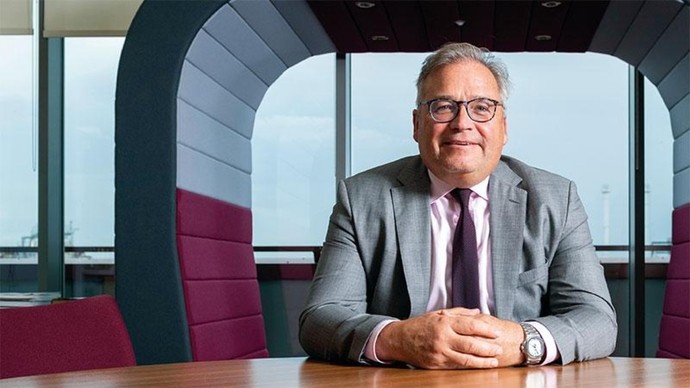
Mason says he was keen to put his stamp on rail. “TfL had engineering requirements, so I sort of camped out down south and developed the rail activity.”
Mason took the role of HR director, which gave him a seat on the board. In 1997, Gerry decided to retire to Spain and Ged Mason took over with some new board directors.
He says: “The business was moving away from being relationship-driven, whereby if you knew the drawing office manager, that was the route to gain business. Large companies were going out to tender on services like ours, so we had to put tenders out and be vetted.
Mason adds: “I’ve never been frightened to employ people cleverer than me. The spirit of Morson is we hunt together in packs. We muck in and have a good spirit and camaraderie.”
In 1999 Morson sold half of the business to venture capital. “Then we bought it back, took it private and floated on AIM for six years. But the economy meant our share price got affected.”
In the same year, it was reported that founder Gerry Mason sold the company to a management team led by Ged.
The deal was funded by Barclays Private Equity, which took a 55 per cent stake in the company. At the time the deal valued Morson at around £55m. The new buyout five years later, for an undisclosed sum, was also being led by Ged Mason and reportedly supported by financial director Paul Gilmour and managing director Kevin Gorton.
Did Mason have any regrets over the private equity and AIM days? “No. It’s been a learning curve and staff have always been rewarded.”
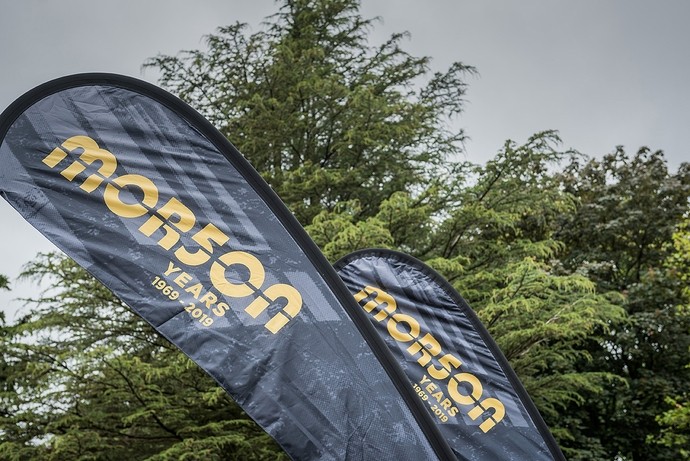
With offices in Italy, South Africa, Toronto, California, Texas and Australia and 1,200 staff throughout, the aim is to hit a billion pounds in turnover, but Mason is relaxed about the prospect. “We set a target five years ago for a billion. We won’t hit it this year, but I think we have every chance next year. Turnover is just vanity though, it’s just a milestone.”
Morson’s corporate responsibility is a higher priority, it seems, than hitting the billion. Mason says: “We want to give back and sprinkle dust where we can.”
The Morson office was built on land bought from Peel. Mason says: “It’s purpose-built with gyms and prayer rooms.
“When this office was built 13 years ago it was quite ahead of itself.”
Mason says his two sons George and Matthew are unlikely to follow into the family business. He smiles warmly as he says each will “find their own path”.
He adds: “One is mad on cars and the other has a job at Sale Sharks [of which Mason is a part owner] helping the kit man.”
Morson has celebrated 50 years this year with a big corporate party attended by Manchester musicians Russell Watson, M People, and Manchester poet Tony Longfellow. “Sir Alex came”, he adds. “The staff enjoyed it.”
“We have to look at the garlic bread. What is the future? Technology is the garlic bread of the future. Data is the new oil. - Ged mason”
It is also launching ‘50 weeks of giving’ where every week a different charity will be helped.
Mason quietly mentioned his pal Alex Ferguson but is far from a name-dropper. He doesn’t, for example, mention receiving his OBE from Prince William in 2016 or the racehorses he has co-owned with Ferguson and Jeremy Kyle.
The company has raised some £2m since 2006 supporting around 20 charities including the Seashell Trust, Motor Neurone Disease Association and soldiers’ charity ABF.
The company has also made a commitment to contribute £500,000 to the Makerspace at Salford University, which Mason calls “an incredible space with laser 3D cutters”. The Mason family charity has also helped the university with a scholarship for 40 students studying engineering degrees.
Morson is no longer just about engineering recruitment. I ask Mason what the thinking is behind broadening horizons.
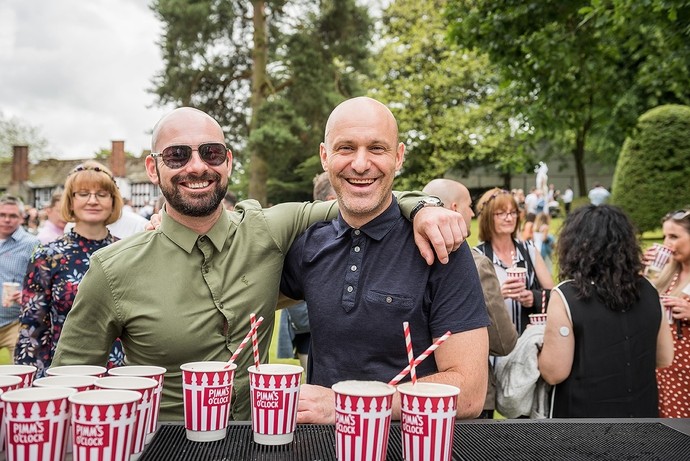
He answers with reference to the legendary Peter Kay sketch: “We have to look at the garlic bread. What is the future? Technology is the garlic bread of the future. Data is the new oil. A lot of engineering’s roles are bleeding into technology. We have cyber-security, IT, analytics. We’ve moved into those places over the years.”
He says it “would be nice to have a business that’s working while we’re sleeping with clicks on the web”, but adds that “you still need the human touch”.
At times even Mason himself is surprised with his company’s success story and insists he is still serving his own apprenticeship: “Sometimes I have to pinch myself over all the exciting projects we work on. Nuclear power, submarines, aircraft carriers, the Typhoons.”
He says staff retention is “up there with the best”, adding that last year the company had a 40-year service award. Along with the ‘lifers’, Mason is also adapting to a new crop of recruits.
He says: “The millennials and the noughties’ attitude to working for a company for life is not their objective. It’s more to gain different experience – the freedom and flexibility. But if people are working from home it’s very difficult to get the same camaraderie.”



